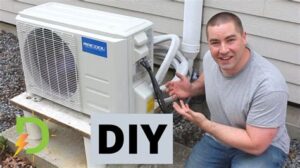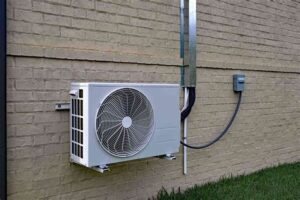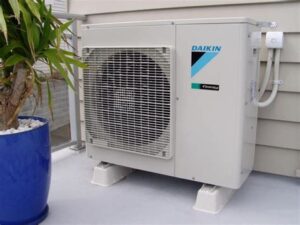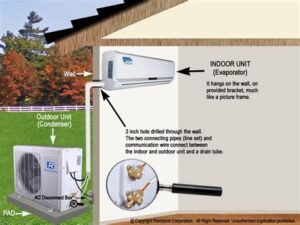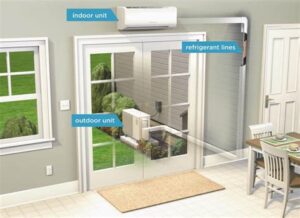Learn about mini split systems, permit requirements, local regulations, and the steps to obtain a permit to avoid consequences of non-compliance.When considering the installation of a mini split system in your home, it’s essential to understand the legal requirements and regulations surrounding HVAC installations. Mini split systems are popular for their energy efficiency and versatility, but navigating the permitting process can be confusing. Do you really need a permit? The answer often depends on your location and local building codes. In this blog post, we’ll explore the nuances of mini split installation, including permit requirements, steps to secure them, and the potential consequences of proceeding without proper authorization. By understanding these factors, you can ensure compliance and avoid any unwanted complications as you enhance your home’s comfort and efficiency. Whether you’re a DIY enthusiast or planning to hire a professional, this guide will illuminate the important aspects of installing a mini split system legally and safely.
Understanding Mini Split Systems
Mini split systems are an increasingly popular choice for heating and cooling in residential and commercial buildings. These systems consist of two main components: an indoor air-handling unit and an outdoor condensing unit. Unlike traditional HVAC systems, mini splits do not require ductwork, making them a versatile option for many spaces.
One of the significant benefits of mini split systems is their energy efficiency. They use inverter technology to adjust the compressor speed based on the heating or cooling demand, which can lead to significant energy savings over time. Additionally, mini splits are known for providing precise temperature control, allowing users to adjust individual zones according to their preferences.
When considering the installation of a mini split system, it’s essential to assess your space’s specific needs, including the size and layout of the area to be conditioned. Furthermore, understanding the installation requirements and ensuring compliance with any local regulations will help you avoid complications in the future. Thus, it is crucial to gather information about local building codes, permit requirements, and the potential impacts of installing without proper authorization.
Permit Requirements for HVAC Installation
When considering the installation of a mini split system, one of the primary concerns homeowners face is whether they need to obtain a permit. The answer often depends on various factors, including local building codes and regulations. In many jurisdictions, any installation that involves significant electrical work, plumbing, or structural modifications typically requires a permit.
Before proceeding with your HVAC installation, it is essential to check with your local building department. They can provide specific information on the requirements for obtaining a permit for your mini split system. In some areas, a simple replacement of an existing unit may not require a permit, while installing a new system or making alterations to ductwork or drainage does.
Failing to obtain the necessary permits can lead to several consequences, including fines or the need to remove the installed system altogether. Additionally, if you plan to sell your home in the future, having all t
Local Building Codes and Regulations
When considering the installation of a mini split system, it’s essential to understand the local building codes and regulations that may apply to your area. Each municipality can have its own set of guidelines that dictate how and where you can install HVAC systems. Adhering to these regulations is crucial not only for safety but also for ensuring the system’s efficiency and longevity.
Typically, local building codes cover various aspects such as installation methods, required permits, and safety standards. It may also include specifications about electrical work, refrigerant handling, and proper drainage. A failure to comply with these regulations can lead to issues such as fines and potential safety hazards.
Before proceeding with your mini split installation, it’s advisable to check with your local building department. This can often be done online or over the phone. They can provide you with the most current requirements and alert you to any specific
Steps to Obtain a Permit
Obtaining a permit for installing a mini split system is crucial to ensure that your installation complies with local codes and regulations. Below are the essential steps you need to follow to acquire the necessary permit.
| Step | Description |
|---|---|
| 1 | Research Local Regulations: Before anything, check with your local building department or website to understand the specific requirements for obtaining a permit. |
| 2 | Prepare Required Documents: Gather all necessary documents such as your property’s blueprint, installation plan, and any previous permits. |
| 3 | Application Submission: Complete the permit application form and submit it along with the gathered documents to your local authorities. |
| 4 | Pay Fees: Be prepared to pay any applicable fees associated with your permit application. |
| 5 | Inspection Scheduling: Once submitted, schedule an inspection as required by your local code enforcement. |
Following these steps meticulously can streamline the process of obtaining a permit and ensure that all aspects of your installation are above board. Always consult with professionals if you’re unsure about specific regulations.
It’s important to note that some areas may require additional documentation or a longer processing time, so plan ahead to avoid unnecessary delays in your project. Failing to adhere to these procedures can lead to fines or complications down the line.
Remember, acquiring a permit isn’t just a bureaucratic step; it’s a vital part of safeguarding your investment and maintaining the safety and compliance of your home’s HVAC system.
Consequences of Installing Without a Permit
Installing a mini split system without obtaining the necessary permits can lead to a multitude of consequences that homeowners should be aware of. First and foremost, legal penalties may arise, such as fines or even mandatory removal of the installed system. Many municipalities enforce strict building regulations and failing to comply can result in significant financial repercussions.
Moreover, not having the proper permits can complicate insurance claims. In the event of damage or malfunction of the mini split system, insurance companies may refuse to cover the costs associated with repairs or replacements if the installation did not follow local regulations. This can lead to unexpected out-of-pocket expenses for the homeowner.
Additionally, performing unpermitted work can affect property value. During a real estate transaction, potential buyers may shy away from a property with unpermitted installations, leading to lower sale prices or delays in the selling process. Ensuring that your mini split system is installed with the proper per
Frequently Asked Questions
What is a mini-split system?
A mini-split system is a type of heating and cooling system that consists of an outdoor compressor unit and one or more indoor air handling units. It provides efficient temperature control without the need for ductwork.
Why might someone need a permit to install a mini-split?
A permit may be required to ensure that the installation meets local building codes and safety regulations. This is especially important for electrical and plumbing work involved in the installation.
How do I find out if I need a permit for my mini-split installation?
To find out if you need a permit, you should check with your local building department or municipality’s regulations. They can provide specific information based on your location and the scope of your project.
What are the consequences of installing a mini-split without a permit?
Installing a mini-split without a permit can lead to fines, required removal of the system, or issues when selling your property. It may also void warranties or insurance coverage related to the installation.
Can I install a mini-split myself, or should I hire a professional?
While some homeowners may attempt a DIY installation, hiring a professional is recommended to ensure compliance with local codes, proper installation, and safety, particularly for electrical and refrigerant connections.
What factors can influence the need for a permit?
Factors influencing the need for a permit include the complexity of the installation, any modifications to existing structures, changes to electrical systems, and specific local regulations.
How can I prepare for the permit application process?
To prepare for the permit application process, gather necessary documentation such as plans, specifications, and any required fees. Additionally, familiarize yourself with local laws and any inspections that may be needed.
